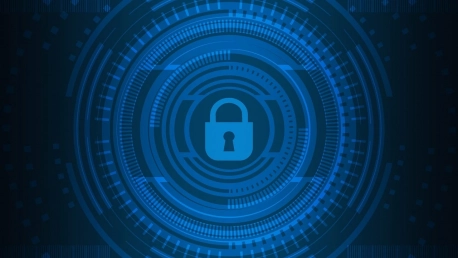In the rapidly evolving digital landscape, startups are increasingly becoming targets of sophisticated cyber threats. As they strive for innovation and market penetration, it’s imperative for these nascent companies to bolster their defenses against potential cyber-attacks that could jeopardize their growth and survival. Here are systematic strategies startups can implement to reinforce their cybersecurity posture and secure their business future.
1. Employ Robust Authentication Measures
Startups must secure their digital thresholds by implementing multifactor authentication (MFA). MFA serves as a bulwark against unauthorized access by requiring users to provide multiple credentials before gaining entry to systems and databases. This method is especially effective in safeguarding against sophisticated cyber-attacks like session replay and SIM swapping. By integrating MFA, startups ensure that a compromised password alone cannot grant intruders access to sensitive data and resources.The importance of robust authentication measures cannot be overstated, and multifactor authentication stands as a critical line of defense in the contemporary cybersecurity arsenal. Adopting MFA across all business facets ensures startups not only keep pace with cybersecurity best practices but also sets a standard for future security enhancements.
2. Prioritize Software Maintenance
The vitality of software in the startup environment means its maintenance is a top-tier priority. Regular updates serve as a preventative measure against the multitude of vulnerabilities that emerge daily. Incorporating an automated system for these updates eradicates security loopholes promptly, minimizing the opportunity for cyber adversaries to exploit outdated software.Automating software maintenance ensures that neither human error nor oversight compromises a startup’s cybersecurity. Through diligence and foresight in software updates, startups can effortlessly sustain a robust security stance, continuously adapting to the shifting cyber landscape without sacrificing focus on core business operations.
3. Establish an All-Encompassing Cybersecurity Framework
Creating a comprehensive cybersecurity framework is paramount for startups. Such a framework must encompass real-time threat detection, a structured incident response plan, and secure backup and recovery protocols. Undertaking thorough and regular risk assessments, coupled with advanced endpoint protection and constant system monitoring, allows startups to swiftly detect and neutralize threats, safeguarding their operational integrity.An encompassing cybersecurity strategy extends beyond mere defense; it represents a proactive commitment to preserving the company’s assets, data, and reputation. It is a testament to the foresight and preparedness of a startup, instilling confidence in customers, investors, and partners that the business is resilient and reliable.
4. Promote the Creation of Robust Passwords Among Staff
The creation and use of strong passwords is a fundamental cybersecurity practice that all employees should embrace. Encouraging staff to build complex passwords, using a blend of characters, greatly reduces the chances of unauthorized access. Integration of password managers can assist in generating and storing secure passwords, while routine changes, especially in the wake of breaches, fortify a company’s digital defenses against infiltration.Training staff in robust password creation and maintenance transforms the workforce into an active participant in the cybersecurity ecosystem. Every employee becomes a custodian of security, forming an extended layer of protection throughout the organization.
5. Formulate and Maintain Explicit Security Guidelines
The formulation of clear, audience-focused written security policies serves as the keystone of a startup’s cybersecurity posture. These guidelines should encapsulate the organization’s security practices in an easily comprehensible manner. Regular revisions are necessary to align the policies with evolving security trends, ensuring coverage of new technologies and compliance with regulatory standards.Clear communication is a precursor to successful policy implementation and adherence. When employees understand the rationale behind security measures, they are more likely to embrace these practices, thereby reinforcing the company’s defenses against cyberattacks.
6. Develop Data Backup and Restoration Methods
Executing systematic, automatic backups ensures that business continuity remains unshaken in the face of unforeseen events. A diversified backup strategy, storing data across multiple secure environments, alongside regular testing of recovery procedures, prepares startups for swift and efficient responses to incidents like data breaches, ransomware attacks, or natural disasters.The proficiency of a startup’s backup and recovery strategy is a measure of its resilience; it allows the business to weather storms and emerge with minimal damage to its operations and reputation.
7. Vigilantly Assess Third-Party Vendor Security
Vigilant assessment of third-party vendors’ security measures is essential for startups to avoid the vulnerabilities that can arise through supply chain partners. Establishing stringent criteria for vendor selection, regularly reviewing and monitoring their security practices, and insisting on adherence to the startup’s own security standards can preempt potential security breaches emanating from third-party engagements.By scrutinizing third-party vendors with the same rigor applied to internal security processes, startups ensure a unified cybersecurity front, solidifying a chain of trust within their operations and business relationships.









